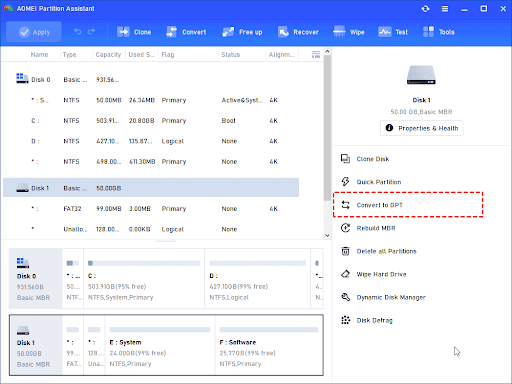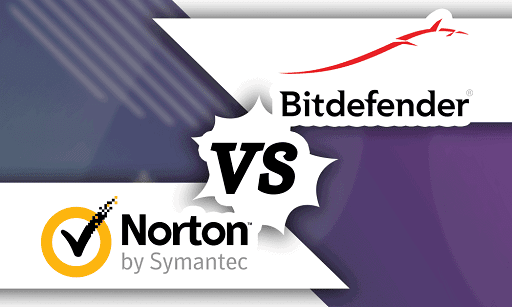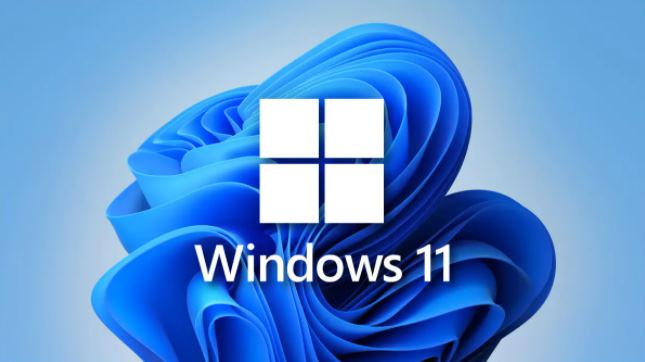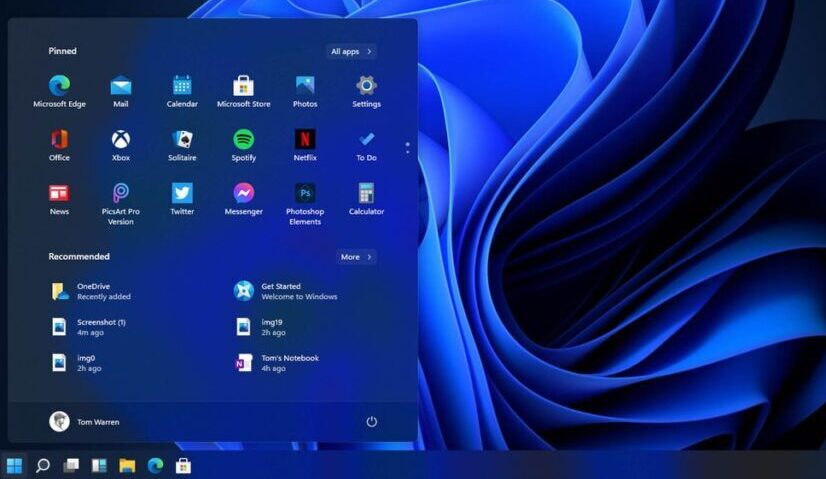Best Windows 11 Antivirus: We should all know the rules of how to protect our privacy and Internet security and keep Windows secure: Don’t tap questionable links or download apps from shady sites, don’t open unexpected messages and emails, don’t give out personal information, use secure passwords, and keep your Windows software up to date.
Best Windows 11 Antivirus Software
To stay safe online, it’s a good idea to take a few extra precautions beyond just antivirus software. Here are three simple steps:
- Use a password manager to keep track of your logins securely
- Use a VPN to protect your internet traffic, especially on public Wi-Fi
- Use an end-to-end encrypted messaging app to keep your conversations private
But if you’re mainly looking to protect your Windows device from viruses and malware, the first thing you should do is install (or activate) reliable antivirus software. Good antivirus tools will scan your apps, downloads, and system activity for anything suspicious.
Here’s the key point: Microsoft Defender, the built-in antivirus that comes with Windows 11, is actually really good. It was previously called Windows Defender, and unlike older versions of Windows (like Windows 98 or XP, which had no built-in protection), Defender now provides strong, free protection right out of the box.
For most users, Microsoft Defender is more than enough to keep their PC safe. It updates automatically, runs in the background, and handles the basics very well.
So if you’re using Windows 11, starting with Microsoft Defender is a smart move, and in many cases, you won’t need anything else.
Antivirus Software
Still, it’s fair to say that the Windows security ecosystem is better off when users don’t rely solely on Microsoft for protection.
If you prefer having more options and stronger platform diversity, there are plenty of reliable third-party antivirus tools out there; many of them are completely free and very capable of keeping your PC safe. Most also offer paid plans that cover multiple devices, though honestly, extra protection is rarely needed outside of Windows.
With that in mind, we’ve put together a list of the best antivirus options for Windows. It includes both free and paid choices, based on expert reviews from independent testing labs like AV-Test and AV-Comparatives, plus our own hands-on experience.
Windows Defender Antivirus
Whether you’re just looking for free antivirus protection, willing to pay for full coverage across all your devices, or urgently need to remove a virus from your PC, this is a good place to start.
For everyday users, Microsoft Defender Antivirus (built into Windows 11) gives you solid, no-cost protection right out of the box. It runs quietly in the background and updates daily. Just leave it on, and it’ll take care of the basics.
For businesses, Windows Defender Advanced Threat Protection is available as a paid option, offering more advanced tools.
That said, if you stick to good habits like keeping your software updated, using strong passwords (a password manager helps), and avoiding sketchy links and surprise emails, you can avoid most threats, including ransomware and zero-day attacks.
Microsoft recently renamed Windows Defender to Microsoft Defender and is now offering it across more platforms. But for Windows 11 users, the built-in version gives you a reliable safety net in case something slips through.
Microsoft Defender is now stronger than ever, as it now has the following improvements and features:
- Built into Windows 11 at no extra cost.
- Provides real‑time protection, firewall, ransomware shield, SmartScreen, and cloud‑based AI updates.
- Scores perfect protection, performance, and usability in AV‑TEST trials as of April 2025.
- Continues receiving security intelligence updates through at least October 2028.
- Many users find it sufficient for general use, though it lacks advanced extras like VPN, identity monitoring, or parental controls.
Malwarebytes Antivirus
Malwarebytes does a solid job protecting your PC from viruses and malware, and it performs well in independent lab tests. But where it really shines is in cleaning up infections after something slips through. If your system is already in trouble, Malwarebytes is often the go-to tool many people trust to disinfect and recover.
You can get full protection and cleanup features for one device at $40 per year. If you need coverage for up to 10 devices (mix of Windows, macOS, or Android), the price jumps to $130 annually.
Moreover, if you’re not ready to pay, there’s a free option. Just download the trial version; it will automatically switch to the free on-demand scanner after the trial ends. While it won’t give you real-time protection, it still lets you run manual scans to find and remove malware when needed.
Norton 360 / Norton 360 Deluxe
Norton Security, now known as NortonLifeLock, has been a trusted name in cybersecurity for years. It consistently earns top scores from AV-Test for detecting viruses and malware.
A subscription for five devices normally costs $99.99/year, but you can often find it on sale for $59.99. It covers a mix of PCs, Macs, Android phones, iPhones, and iPads. (That said, we still believe antivirus protection is really only necessary for Windows.)
What You Get with Norton
Beyond just virus and malware protection, Norton includes:
- 100GB of cloud backup
- Safe-browsing tools to block risky sites
- A built-in VPN
- Web-based device management
- LifeLock identity theft protection (depending on the plan)
It’s a well-rounded option and a strong pick for anyone looking for solid Windows 11 antivirus software with useful extras. It is ideal for family use due to parental controls and LifeLock identity theft coverage. Strong protection scores; includes VPN and device monitoring tools.
Worth Considering: Best Antivirus for Windows 11
In addition to the three antivirus apps we recommend above. A handful of other anti-malware tools are worth considering among the best antivirus protection if you find them at a better price or prefer to use one over our picks above.
If you’d like to take a step up in securing your PC without taxing your wallet, it’s hard to beat Bitdefender’s free anti-virus software for Windows 11. The Windows security software offers real-time monitoring for viruses, malware and spyware, and ransomware protection.
Bitdefender Antivirus Free Edition is easy to set up and stays out of your way until you need it. And the protection it offers is solid. Bitdefender consistently earns top marks for its antivirus protection and usability from the respected AV-Test independent testing lab.
The free antivirus version covers one Windows PC. For broader protection, Bitdefender Internet Security is $80 MSRP and is available at the moment for $45.
It lets you protect three computers, set up parental controls on a kid’s computer, and run a VPN. To protect every device you own, the Bitdefender Family Pack can secure 15 total devices; Windows, Android, iOS, and macOS; in your home for $120 MSRP and is discounted to $60 right now.
Bitdefender Antivirus
It feels like the company has been around forever, first on its own in the ’80s, then as part of Intel starting in 2010, and then again on its own when Intel spun it off in 2017.
And it’s been around forever because, quarter after quarter, it creates solid security software that protects your PC. (In recent evaluations by AV-Test, it had perfect scores on detecting 0-day attacks and blocking current widespread viruses and malware.)
McAfee Total Protection guards against viruses and offers ransomware protection, wards off shady websites, and includes a password manager.
It lets you manage all your protected devices through the web console. A 10-device subscription is normally $120 MSRP but currently is $45 for any combination of Windows, macOS, Android, and iOS devices.
Maybe not as well known to consumers because of its focus on enterprise security, Trend Micro quietly brings its business expertise to the home with its Trend Micro Maximum Security tools.
Trend Micro’s software earns high marks from AV-Test, scoring 100 percent in detecting 0-day attacks and widespread viruses and malware. And Trend Micro does a good job of not taxing system resources. For example, Trend Micro’s 10-device subscription for computers and mobile devices is $90 MSRP but is currently discounted to $50.
If you are looking for something easy to set up and use, ESET NOD antivirus may meet your needs. It earns top scores for usability and offers solid virus protection. And its Android antivirus gets top marks in third-party tests.
Top overall pick in multiple 2025 product reviews as it offers nearly perfect malware detection, light impact on system performance, and features like VPN, firewall, password manager, and identity theft protection.
Kaspersky Antivirus
Kaspersky Lab has made headlines over the past few years, let’s break down what’s going on; especially around the U.S. federal government ban.
Kaspersky, a cybersecurity company based in Moscow, has been known for offering top-tier antivirus protection for both businesses and individual users. For a long time, it was one of the most trusted names in the industry.
But in 2017, the U.S. government banned the use of Kaspersky software on federal systems due to concerns about alleged ties to the Russian government. It’s important to note: this ban only applies to federal agencies, not to regular consumers.
Still, it raises a fair question; if the U.S. government doesn’t trust it on their systems, should you?
In response, Kaspersky has strongly denied any connections to any government and says it has never engaged in offensive cyber operations. The company also points out that no public evidence has ever been shared to support the claims against them.
Despite the controversy, Kaspersky continues to score very well in independent lab tests for virus and malware detection, especially in endpoint protection. It’s also competitively priced:
- $30/year for antivirus protection on 3 devices
- $75/year for Kaspersky Total Security (covers more features and devices)
- By comparison, Webroot SecureAnywhere costs about $37.50/year for 3 devices, or $30/year for just one.
While there’s been no public proof of wrongdoing, the concerns surrounding Kaspersky are hard to ignore, especially if you work for or with the U.S. government. In that case, it’s best to avoid it altogether.
For everyone else, it comes down to personal risk tolerance. Kaspersky is still a strong performer in antivirus protection, but if you’re uncomfortable with the background noise, there are plenty of solid alternatives on the market.
Antivirus Basics: What to look for
When you’re picking antivirus software for your Windows PC, you want something that keeps you protected without slowing everything down. It should be simple to use, quietly run in the background, and only pop up when it needs your attention.
Here’s what to look for:
- Solid Protection: A good antivirus scans for known viruses and malware, offers real-time protection, and warns you about dangerous websites and shady links.
- Ransomware and Unknown Threats: The best ones can also spot suspicious behavior that might signal brand-new, unknown threats even before they’re officially identified. Just make sure it doesn’t constantly flag harmless files by mistake (false positives).
- Low System Impact: Antivirus software shouldn’t make your PC feel slow. If you notice web pages taking forever to load, apps lagging, or file transfers crawling after installing it, that’s a sign to try a different one.
- Free Trials Are Your Friend: Most antivirus programs offer a free trial, so take advantage of that. Test how it runs on your system before you commit.
- Don’t Pay Full Price Right Away: Always check for deals. Many antivirus companies offer discounts on their websites or through places like Amazon. Also, if you don’t need coverage for a bunch of devices (like 10), you can usually find cheaper options for just 3 or 5.
Paid Antivirus Leaders for Windows 11
McAfee+ Premium
- Covers Windows, macOS, Android, and iOS.
- McAfee’s AI-based protection wins top awards for low system impact and high detection in independent testing.
- Bundles antivirus with identity monitoring, VPN, privacy cleanup tools, and support.
Avast Premium Security
- Excellent detection rates, fast scans, and minimal performance hit.
- Best for gamers or budget shoppers. Lacks built-in VPN or password manager but includes ransomware shield and webcam/email protection.
- Privacy concerns remain due to past data‑collection scandals.
ESET Security Ultimate
- Lightweight, highly customizable, and strong malware detection.
- Offers advanced firewall, identity protection, and efficient performance.
TotalAV (Protected.net)
- Earns top ratings for malware detection and malware cleanup features.
- Includes system‑tuneup tools and an easy interface; lacks a built‑in firewall.
Surfshark Antivirus (part of Surfshark One bundle)
- Offers real‑time malware protection, phishing and ad blocking, webcam shield, and VPN integration.
- Best for users pairing VPN and antivirus in one app.
Performance Rankings (AV‑TEST, April 2025)
All top products earned perfect scores: Avast Free, AVG Internet Security, Avira, Bitdefender, ESET, F‑Secure, Kaspersky, McAfee, Microsoft Defender, Norton, and TotalAV.
Pick Based on Your Needs
- You want built‑in, reliable/free, try Microsoft Defender
- You want top protection and extras (VPN, spyware, parental controls), try Bitdefender, Norton, McAfee
- You want minimal impact and full control. Use ESET
- You use VPN already or want antivirus in bundle install Surfshark One
- You game or prefer a lean premium app, try Avast Premium
Extra Protection Tools
- Malwarebytes offers high‑level on‑demand scanning and cleanup. Good pair with Defender.
- Free spyware cleanup tools like SUPERAntiSpyware or ESET Online Scanner can complement an antivirus.
Feature Comparison
- Microsoft Defender: full protection, zero cost, integrated support, no identity tools.
- Bitdefender/Norton/McAfee: wider feature sets, identity theft coverage, VPN, and privacy tools.
- ESET: efficient, clean interface, tailored controls.
- Avast: cost‑effective premium security; fewer extras.
- Surfshark: antivirus tied into VPN ecosystem.
Best Antivirus To Protect Windows 11
For antivirus software to protect your computer properly, it needs to monitor your system and sometimes connect to company servers to check for suspicious activity. These companies say they try to keep the data anonymous to protect your privacy.
If you’re curious about what data they collect or how they use it, each company usually has a privacy policy on their website. It’s worth taking a look so you understand what you’re agreeing to.
Windows computers are the most common targets for viruses and malware. But Android phones are second on the list. The biggest risk on Android comes from apps that are “sideloaded,” meaning they’re installed from outside the official Google Play Store.
In late 2018, Google reported that about 0.99% of sideloaded apps were potentially harmful, compared to only 0.042% from the Play Store.
We generally don’t recommend sideloading apps, as it increases your risk. But in some cases, like when Fortnite wasn’t available on the Play Store, you might still want to. If so, it’s smart to use trusted antivirus or security software.
Apple’s tight control over its app stores helps keep malware risks low for both macOS and iOS devices. While Macs can still be exposed through sideloaded apps, the risk is small if you stick to the official App Stores and are careful with downloads and links.
So, in most cases, antivirus software isn’t necessary for Apple devices; just practice good habits and stay cautious.
Would you like to read more about Windows 11 Antivirus-related articles? If so, we invite you to take a look at our other tech topics before you leave!
![]()













